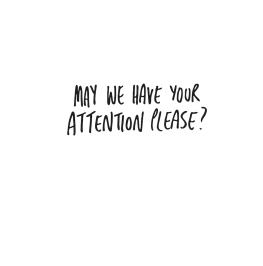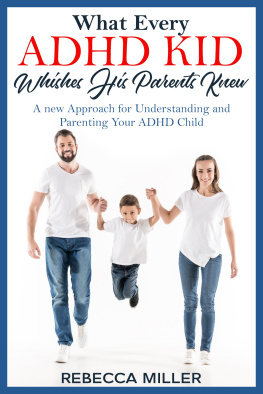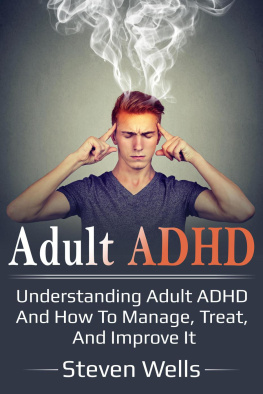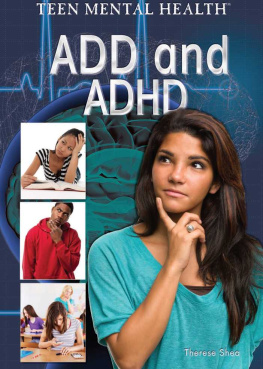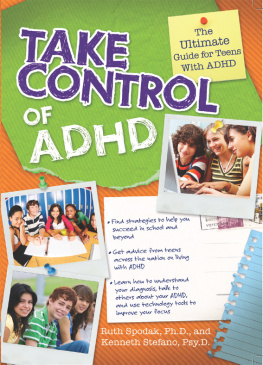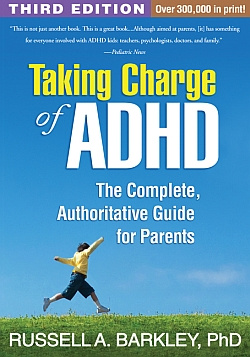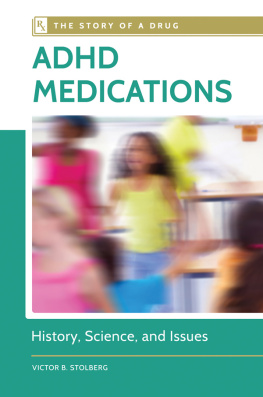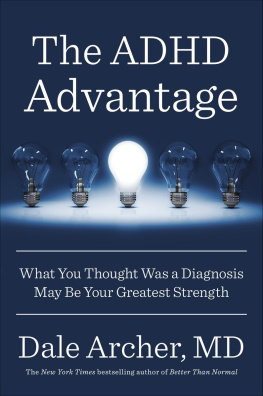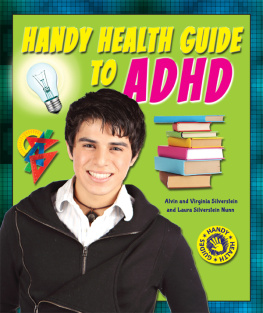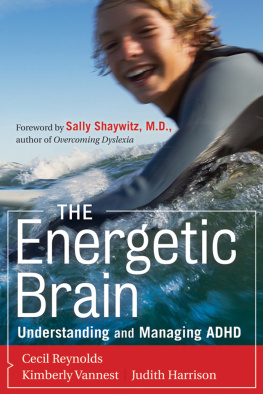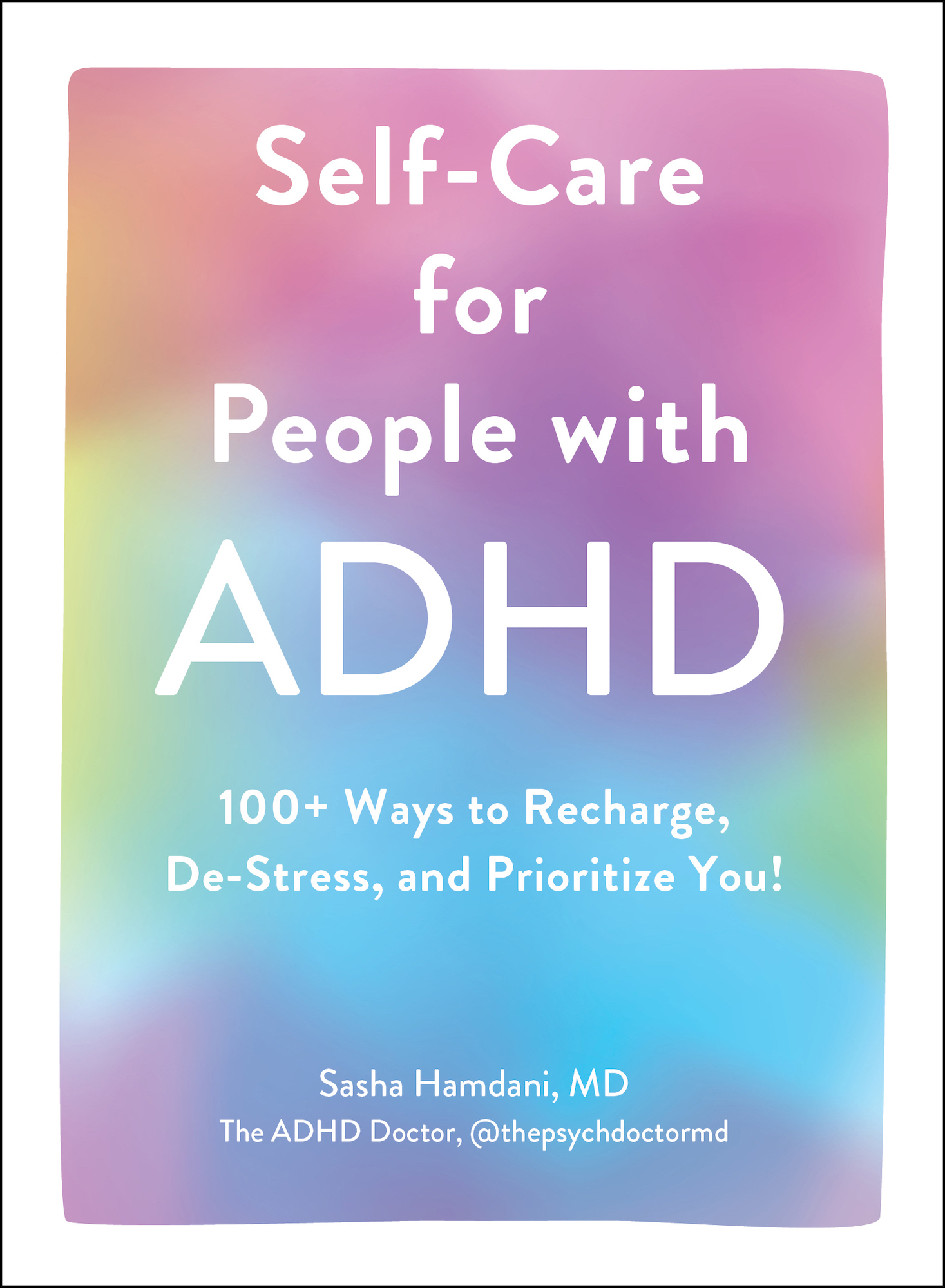Contents
Guide
Self-Care for People with ADHD
100+ Ways to Recharge, De-Stress, and Prioritize You!
Sasha Hamdani
The ADHD Doctor, @thepsychdoctormd
Dedication
This book was a labor of love and the culmination of many confusing years of navigating through ADHD. I was assured no one reads these, so I can be as nauseatingly earnest as I want:
Thank you for the faith that carried me through dark, weird times and gave me something to hold on to. Thank you to both of my families for being constant supports and especially to my two baby birds for shining so much light into my life. Thank you to my medical school coordinator, Gladys, for hugging me when I needed it most. Thank you to my entire Banner family for gluing back my pieces and making me a physician. Thank you to my social media community for building such a beautiful, inspiring virtual world and allowing me to be my true, authentic self. Thank you to Radhika for being Radhika. And thank you to Leah, who plucked me from obscurity and gave me the golden chance to write this book.
If I think about it too much, I will definitely start crying. So, just thank you from the bottom of my heart.
Preface
ADHD is a part of me. It is intrinsically woven into my DNA and is expressed in almost every facet of my life. My ADHD has grown with me and changed with new seasons in my life. It has made me realize that caring for myself and my well-being is inherently important and not something that I can push to the side or forget about. ADHD has challenged me but also propelled me to achieve things that I never thought were possible. And it is what led me to write this book.
My symptoms were first noticed in fourth grade in the form of a vivacious little girl who often had difficulty settling down. Even at that young age, I was acutely aware that I was capable of doing better but just didnt know how. The teacher brought up these concerns to my parents. Days later, I was formally diagnosed with ADHD and started on medication. The difference was immediate. I sailed through school and began to truly enjoy learning. I knew that I wanted to go to medical school, but when I got there, I had to function independently without the support architecture that I had previously known. I felt disillusioned. My entire identity had been defined by academic success and that carefully cultivated image had shattered. It was then that I realized medication on its own wasnt enough.
With a great deal of support, I was able to complete medical school and match into a psychiatry residency. That is where my journey changed. For the first time in my life, people wanted to talk about what was happening in my brain. In those safe surroundings, I realized that ADHD is not something to be fixed but rather is something to be managed. I had the time and the emotional space to distance myself from the chaos and slowly build organizational structures that suited my brain. I began trying self-care activities to build my focus, calm my emotions, and battle harmful thought patterns. I began to truly embrace my way of thinking differently and saw it for all its positive attributes rather than dwelling on the negative. It felt like a rebirth. With this new reframing and this deeper understanding of my own unique neural network, I felt like I could think more clearly, communicate more effectively, and remain present in the moment.
Since then, I have continued to rely heavily on those life-preserving self-care routines. ADHD doesnt go away, but learning how to capitalize on your strengths and mitigate your weaknesses can help steer your ship to safe harbor. Self-care is not just a series of extravagances; it is also a form of being mindful of your individual needs so you can achieve a healthy, balanced, and happy life. Taking the time and effort toward self-nourishment continues to be the most healing journey of my life.
I am so grateful I was given this opportunity because I was able to write the guide that I wish someone had written for me. Self-care isnt a dazzling epiphany or a single life hack. It is a series of small choices that can lead you to a better you. Let me show you how
Introduction
Living with attention deficit hyperactivity disorder (ADHD) requires being mindful of things that other people take for granted every day. Tasks and actions that come effortlessly to some people may be difficult for a person with ADHD to achieve. As a result, people with ADHD must learn how to take care of themselves in ways that reward and nourish their brains instead of making them feel like they are being forced to conform through a neurotypical lens. Thats why, if you are coexisting with ADHD, it is especially important that you make time to care for yourself.
Developing healthy self-care practices is part of the behavioral management of ADHD. These practices allow you to meet daily life demands, participate more meaningfully, and remain in a healthy mental space. Thats where Self-Care for People with ADHD comes in. In this book, you will find over one hundred self-care activities that will empower, rejuvenate, and help you be at your best.
Self-care for people living with ADHD involves more than just the stereotypical acts of pamperingit is a cache of survival techniques that prevent you from burning out. These techniques need to be practiced and understood and applied because it takes discipline to take responsibility for your well-being.
Here are just some of the activities youll find in this book:
- Allow Yourself to De-Mask
- Recognize Your Triggers
- Learn How to Nourish Your Brain
- Understand and Recognize Hyperfocus
- Identify Rejection Sensitivity
- Be Aware of Interrupting
- Push Aside Perfectionism
As a clinician with ADHD, believe me when I tell you that fostering a healthy relationship with your diagnosis is key to living a fulfilling life. People with ADHD are creative, bright, bubbly, and energetic, and they make up a vibrant community that you should take pride in. And if you suspect that you may have ADHD and find yourself saying, Hey, that sounds like me while reading this book, speak with your doctor to get the support you need.
Self-care starts with the belief that you are valuable. Let this book uplift, validate, and encourage you because you are valuable! So, get ready to experience the healing powers of self-care!
CHAPTER ONE Emotional Self-Care
People with ADHD need to be especially mindful of their emotional needs as they navigate through the journey of managing their symptoms. Due to emotional dysregulation, you struggle with feelings that seem bigger, more intense, and harder to control. You may be more easily impacted by other peoples emotional climates. You may also struggle with feelings of shame and guilt, as you have limited control over your responses to emotionally demanding situations. This is why self-carethe actions you take to connect with your emotions and process them in a healthy wayis so vital.
In this chapter, you will learn how to nurture your own emotional needs. The activities described here will allow you to learn more about the intricacies and subtle nuances of the ADHD brain and how to utilize them to tend to your emotional landscape. These simple and actionable practices are meant to be repeated as often as needed and incorporated into a routine as you progress forward. A few emotional self-care activities you will find in this chapter are reframing your idea of failure, challenging negative thoughts, celebrating small wins, and focusing on gratitude. Responding to your emotional needs may not come naturally at first, but it becomes easier and more fulfilling as you learn to integrate it into your life. By regularly engaging in emotional self-care and employing self-compassion, you can develop healthy coping mechanisms that greatly enhance your joy and sense of well-being.


